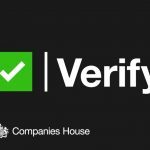Budget 2025: What SMEs, Business Owners & Self-Employed Need to Know
The 26 November 2025 Budget introduced several major tax changes affecting dentists, practice owners, landlords, limited company owners and self-employed professionals.
Some of these changes take effect immediately, while others phase in between 2026 and 2029. This means the next 18–24 months will require careful planning to avoid higher tax bills and unexpected cash flow pressure.
Below is our full summary of the Budget announcements.
1. Dividend Tax Increases (from April 2026)
Dividend tax rates will rise by 2 percentage points:
-
Ordinary rate: 8.75% → 10.75%
-
Upper rate: 33.75% → 35.75%
Example Impact:
A director taking £30,000 in dividends at the higher rate will pay £600 extra tax per year.
Directors who rely heavily on dividends (including many dental principals and small limited company owners) may need to reassess their salary/dividend structure from 2026.
2. Business Asset Disposal Relief (BADR) Increase (April 2026)
The BADR rate on business sales increases from:
14% → 18%
This applies to qualifying gains up to the £1m lifetime limit.
Example Impact:
A £6 million business sale (two shareholders) sees:
-
Tax at 14%: £1,240,000
-
Tax at 18%: £1,320,000
-
Additional tax: £80,000 (£40k per shareholder)
Takeaway:
If you’re considering a sale within the next 12–24 months, timing is absolutely critical.
3. Minimum Wage Increase (April 2026)
National Living Wage for over-21s rises from £12.21 to £12.71.
Impact per full-time employee:
£3,120 extra per year (40 hrs/week)
This does not include employer NI or pension contributions.
Who is affected most?
-
Dental practices
-
Retail
-
Hospitality
-
Labour-intensive SMEs
Payroll-heavy businesses should update their cost forecasts now.
4. Separate Property Income Rates (April 2027)
Rental income will be taxed under new property-specific bands:
-
Basic rate: 20% (unchanged)
-
Higher rate: 40% → 42%
-
Additional rate: 45% → 47%
Plus:
A new “Mansion Tax” style council tax surcharge begins in April 2028 for properties above £2 million.
Landlords and property investors should revisit their tax structure before these changes take effect.
5. Salary Sacrifice NIC Relief Cap (from 2029)
Employer and employee NIC relief on pension salary sacrifice will be capped at £2,000.
Higher earners who currently sacrifice £10k–£40k will lose significant NIC efficiency.
Who is affected?
-
Senior professionals earning £100k+
-
Practice owners contributing large amounts
-
Companies offering enhanced pension packages
6. Capital Allowances Change (April 2026)
-
Writing down allowance main rate reduces from 18% → 14%
-
Full expensing (100% first-year relief) made permanent
-
New 40% first-year allowance introduced for some main-rate assets
These changes will affect how businesses plan equipment purchases from 2026 onward.
7. Tax Thresholds Frozen Until April 2031
Personal allowance and income tax thresholds remain unchanged for three more years.
This is fiscal drag — where more of your income is pushed into higher tax bands due to inflation.
Example:
A sole trader increasing income from £60,000 → £65,000 may pay £1,000+ extra tax per year despite no tax rate changes.
8. Savings and ISA Rules
-
Savings income tax increases by 2% from 2027.
-
Under-65s will face a £12,000 cap on cash ISA contributions (Stocks & Shares ISA unchanged; total limit stays at £20k).
Your 6-Step Action Plan for 2026-27
-
Review your dividend strategy ahead of the April 2026 increase.
-
Time any potential business sale before BADR rises to 18%.
-
Update payroll forecasts for the £12.71 minimum wage increase.
-
Revisit property ownership structures (especially if you own multiple rentals).
-
Maximise pension contributions before the 2029 NIC cap.
-
Plan equipment and asset purchases to take advantage of full expensing.
Early planning will make a huge difference — especially for dentists, practice owners, consultants, landlords and small limited company owners.
Need Help Navigating the Budget Changes?
Every business will feel these updates differently.
Contact us if you’d like to recieve a comprehensive guide or review the numbers for your practice or company:
Email: info@taxeffectiveltd.com
Phone: 0207 096 1192
Address: 42 Westbourne Grove, London, W2 5SH


